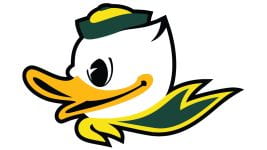Maintenance is an essential responsibility for homeowners to ensure the longevity, safety, and comfort of their living spaces. While some tasks can be easily handled through do-it-yourself (DIY) efforts, others may require the expertise of trained professionals. In this article, we will explore various home maintenance tasks you can tackle independently and those where seeking professional help is the wiser choice. By understanding the distinction, homeowners can save time and money—and stay safe—while keeping their properties in excellent condition.
Plumbing Issues
Safe to DIY: For minor plumbing issues, like a clogged drain or a leaky faucet, tackling the problem on your own is feasible. You can use a plunger for simple drain clogs or use a wrench to tighten loose fittings on a tap. Remember to always turn off the water supply before attempting any DIY plumbing repairs.
Call the Professionals: For more complex plumbing issues such as a burst pipe, sewer line problems, or major leaks, it is best to call in the professionals. Houston plumbers can quickly assess the situation, determine the root cause of the problem, and provide effective solutions. They also have the specialized tools to handle these complex repairs safely and efficiently. Attempting complex plumbing repairs without proper knowledge can lead to even more water damage and costly repairs.
Electrical Repairs and Installations
Safe to DIY: For simple electrical tasks such as changing light bulbs, installing a new switch plate, or replacing an outlet cover, DIY is generally safe and manageable for most homeowners. Homeowners without extensive electrical knowledge can often install low-voltage lighting systems, such as landscape lighting, by following manufacturer instructions closely.
Call the Professionals: Any major electrical projects, such as circuit upgrades, rewiring, or working on the switch panel, should be handled by a licensed electrician. These tasks require extensive knowledge, experience, and adherence to electric codes to ensure safety. If you are experiencing electrical problems that you cannot easily identify or fix, it is best to call a professional. Attempting complex electrical repairs without the proper expertise can lead to electrical shocks, fire hazards, and other serious safety risks.
Roof Cleaning and Repairs
Safe to DIY: For minor roof maintenance tasks such as cleaning gutters, removing debris, or replacing a few shingles, DIY can be safe and cost-effective. These tasks can usually be done with simple tools and some basic knowledge. Be sure to take proper safety precautions by using a sturdy ladder, wearing non-slip shoes, and having fall protection.
Call the Professionals: Attempting complicated roof maintenance and repair tasks without the necessary experience can further damage your roof and lead to potential safety risks. For instance, roof leaks can be tricky to locate and repair, and improper repairs can lead to more extensive water damage or structural issues. Installing or repairing flashing—that prevents water from seeping into vulnerable areas of the roof—is best left to professionals with the expertise and proper tools to ensure a watertight seal.
HVAC Maintenance and Inspections
Safe to DIY: Maintaining clean air filters in HVAC systems is crucial for efficient air circulation and indoor air quality. Regularly inspect and change air filters every 1-3 months, depending on usage and filter type. This straightforward DIY task helps extend the lifespan of your HVAC system and reduces the risk of costly repairs down the line.
Call the Professionals: While changing HVAC air filters is easy for homeowners, more complicated tasks should be left to professionals. Annual system maintenance is best left to qualified technicians who can inspect, clean, and service your heating and cooling units. Attempting DIY HVAC repairs can void warranties and may further damage the system. Additionally, HVAC systems involve electrical components and refrigerants that require specialized knowledge and equipment to handle safely.
Lawn and Garden Maintenance
Safe to DIY: Maintaining your lawn and garden improves the curb appeal of your home. Regularly mow the lawn, prune bushes and trees, and tend to flowerbeds to keep your property well-kept and inviting. DIY lawn and garden maintenance can be a rewarding hobby and a cost-effective way to improve your home’s exterior.
Call the Professionals: While homeowners can safely do most lawn activities, some maintenance activities should be left to professionals. Tree work, such as trimming large branches or whole tree removal, can be dangerous and requires specialized skills and equipment. Dealing with pests and diseases that affect your plants may also require the expertise of professionals who can accurately diagnose and treat the problem without causing harm to your pets, family members, and the environment.
Insulation Installation
Safe to DIY: Periodically inspecting and resealing gaps or cracks around windows, doors, and vents can improve energy efficiency and prevent water damage. Caulking and sealing are relatively simple DIY tasks that save you money on heating and cooling bills and protect your home from potential moisture-related issues.
Call the Professionals: Call the professionals when installing major insulation systems such as spray foam or blown-in insulation. These materials require specialized equipment and training to ensure safe and effective application. Furthermore, certain areas in your home, such as tight crawl spaces, can be challenging to insulate properly. In cases where other hazardous materials like asbestos are present in your home’s insulation, professionals with experience in dealing with dangerous materials must be called in to prevent you from developing any health issues.

